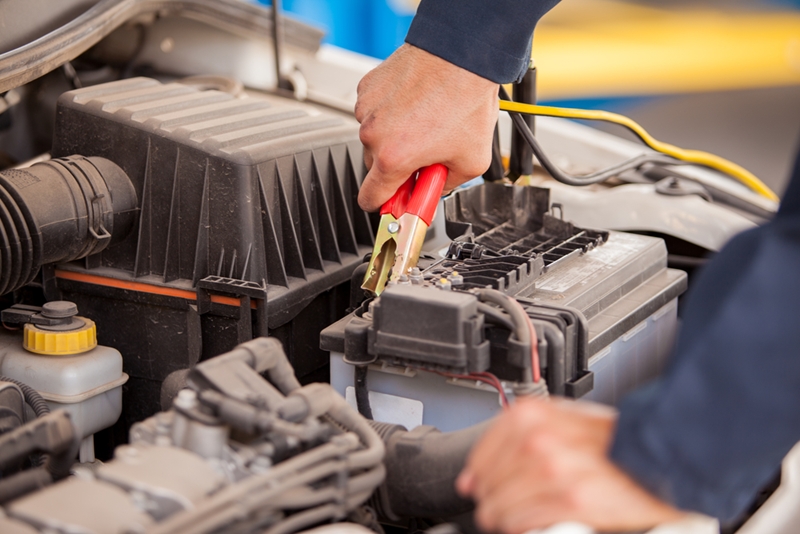From lengthy road trips to taking a quick trip across town, Canadians spend a lot more time driving during the summer months. With more agreeable weather, you can get out there and experience the freedom of hitting the road for vacations and weekend getaways.
Summer travel may have fewer challenges than winter, but that doesn't mean it's hazard free. Don't get caught off guard by a sudden road-side emergency this season - take precautionary steps now so you're prepared if anything goes wrong in your travels this summer.
 Keep booster cables in your car in case your battery dies.
Keep booster cables in your car in case your battery dies.
Building a car emergency kit
The best way to plan ahead and protect your family on the road is to keep an emergency kit in your vehicle at all times. You never know when or where you might need to change a tire, boost your car battery or wait out turbulent weather in your vehicle. Having an emergency kit will be a big help if you find yourself in a such a situation. Keep the basics on hand at all times so you don't get left in the lurch.
According to the Alberta Motor Association, a thorough car emergency kit includes:
- Booster cables.
- A small fire extinguisher.
- A multi-tool or travel tool box.
- Candles.
- Waterproof matches.
- A flashlight.
- Work gloves.
- Towels or rags.
- A jug of clean water.
- Nonperishable snacks, like protein bars.
- Road flares.
- A roadside caution triangle.
- Maps.
- Extra batteries.
- A weather radio.
- Extra clothes and blankets.
- Portable phone chargers.
- A tire iron, portable jack and spare tire.
Having these items helps you through any quick fixes you need to apply while you're on the road or allow you to safely wait for roadside assistance.
It's important to check the supplies in your kit at the start of each season. Be sure your spare tire has an adequate amount of air in it, for example, and that none of your emergency rations have expired.
Update your kit at the end of the summer to include a small shovel, ice scraper and a bag of sand or kitty litter to ensure you'll be ready to go ahead of winter.
"Tell a trusted friend or relative what your travel plans are before you leave town."
Other road trip safety tips
While your emergency kit should help you through most significant roadside problems, it's important to take other precautionary measures as well. Tell a trusted friend or relative what your travel plans are before you leave town. Let them know what your timeline is and where you expect to go. That way, if you need any help, you'll be easier for people to find.
It can be a great experience to go off the grid for a while when you hit the open road, but be sure to check in with someone from time to time so people know where you are and that you're safe. You may also want to consider a travel insurance policy to protect you in case you need medical attention during your travels, or you need to cancel part of your trip. Provincial health insurance coverage varies, so you might need a supplemental plan, even if you're staying within Canada.